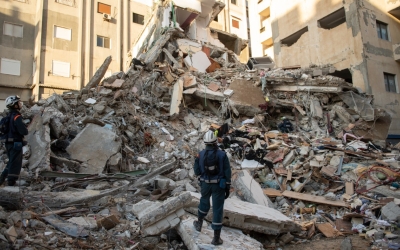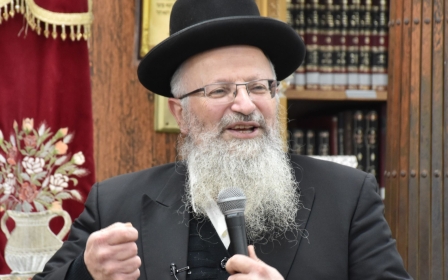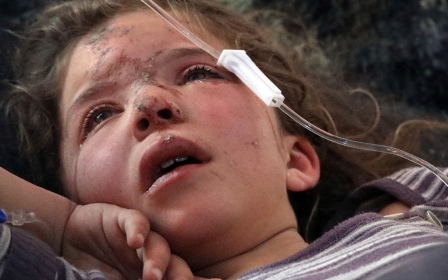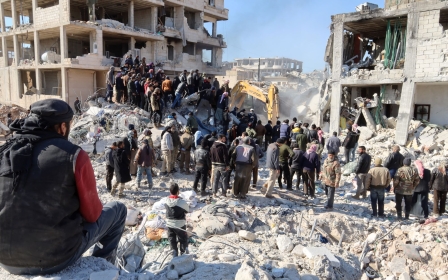Syria earthquake: Hospitals overwhelmed with few doctors left on the front line
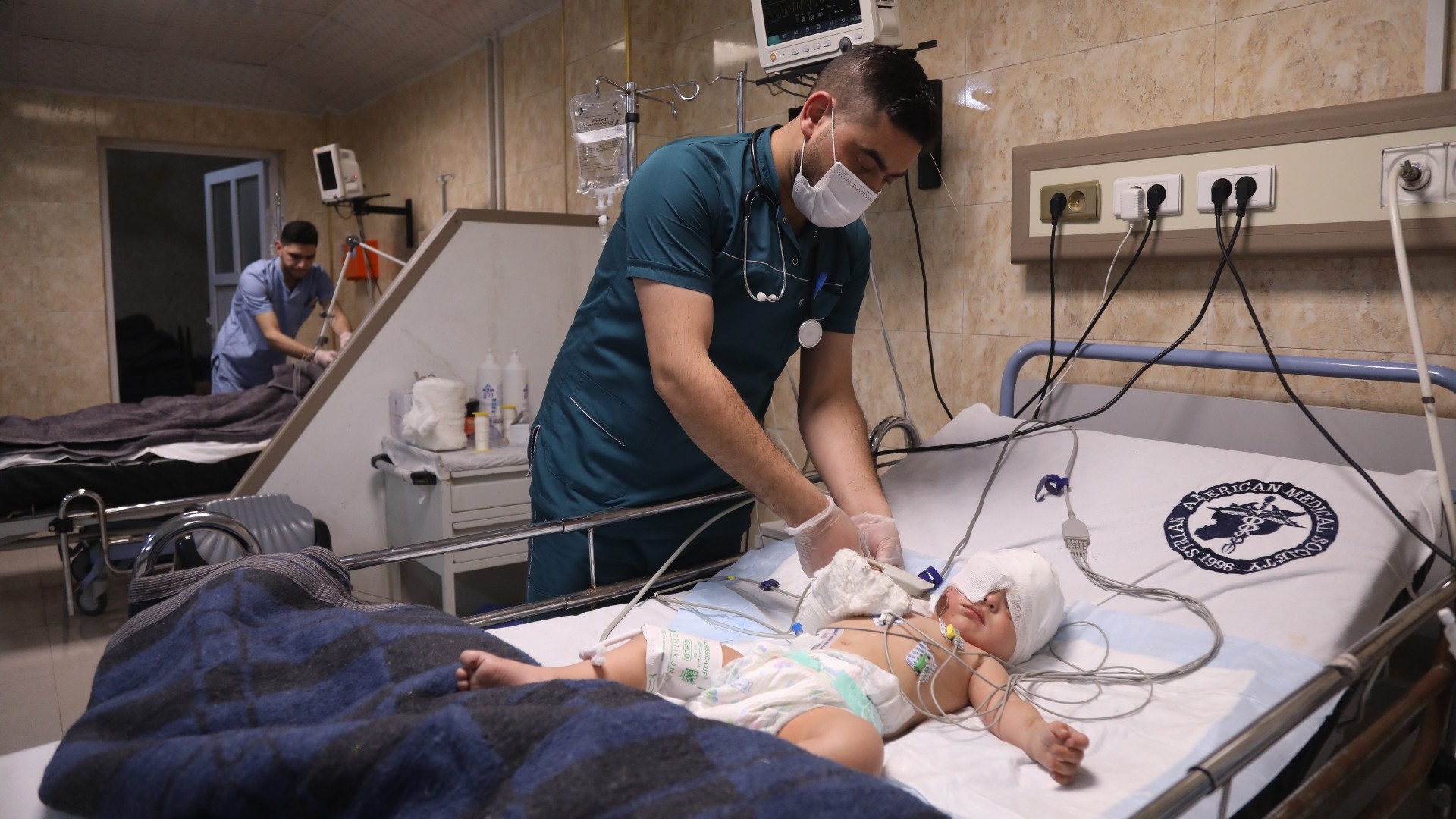
Darkush, Idlib and the Syrian-Turkish border - Doctors in northwest Syria say they are completely overwhelmed by the devastating earthquake that struck the region earlier this week, and don't have the resources or necessary equipment to address the severity of the injuries endured by survivors.
The powerful 7.8 magnitude quake that struck before dawn on Monday wreaked new damage and suffering in Syria's last rebel-held enclave, which was already wrecked by years of fighting and bombardment and was housing millions of displaced Syrians who had fled their homes during the country's civil war.
More than 3,554 people are confirmed to have died across Syria's government-controlled and rebel-held areas, with poor weather conditions and a lack of basic infrastructure severely hampering rescue efforts.
"We've spent the past five days working long hours without getting any sleep or rest to save the injured," Dr Ahmed Ghandour, the director of the Al-Rahma Hospital in the city of Darkush in Idlib province, told Middle East Eye.
He said his hospital was flooded with so many dead and wounded that the few medical staff that worked here were forced to make impossible triage decisions due to a lack of resources.
While most medical staff were having to contend with broken arms and legs or infected wounds, he said the coming days would likely see them have to contend with water-borne diseases such as cholera, an uptick in Covid-19 cases and instances of hypothermia or frostbite.
Hospitals in northwest Syria, the country's last major opposition enclave, were already unable to carry out the most basic of procedures due to repeated attacks by Damascus and its allies since the start of the conflict in 2011.
The region is home to around 4.4 million people, including more than two million who are internally displaced, according to UN figures. Almost 70 percent of the population are in acute need of humanitarian assistance.
Where is the international community?
Pressure has been mounting on the UN to provide urgent assistance to the province, which is yet to receive meaningful aid seven days after the quake struck the region.
A convoy of 14 UN lorries entered opposition-held territory via the Bab al-Hawa crossing on Friday, but the aid was arranged well before the disaster struck.
Ghandour said the quake had created some of the worst conditions he had seen since the start of the conflict, and the death toll would continue to rise unless the UN and international community expedited the delivery of aid.
"The failure of the international community to help us in evacuations and aid operations increases the tragedy we are living through," he said.
UN Secretary-General Antonio Guterres has acknowledged the dire situation, and promised earlier this week that "more help is on the way, but much more, much more is needed".
With hope fading for those still trapped under the rubble, Haitham Diab, the head of the nursing department at Al-Shifa Hospital in Idlib province, said that frustration was growing among those trying to survive in freezing temperatures with dwindling food and medical supplies.
"When the area was being bombed by the Assad regime and its allies, the hospital used to receive a maximum of around 15 injuries - with each patient allocated a good number of doctors and nurses to provide them with the necessary treatment," Diab told MEE.
"But the sheer number of injuries that we've had to deal with since the quake has put a lot of pressure on our medical staff."
Window closing
On Friday, the Syrian government said it had approved the delivery of humanitarian aid to areas outside its control after the US Treasury Department said it had issued a license to allow relief that was otherwise prohibited by sanctions.
But experts say it is highly unlikely that Damascus would allow any aid it received to be equitably distributed in opposition-controlled areas since government forces have repeatedly targeted schools, hospitals and bakeries in rebel-held areas.
Even after Monday's devastating quake, a rebel-held village was not spared government bombardment.
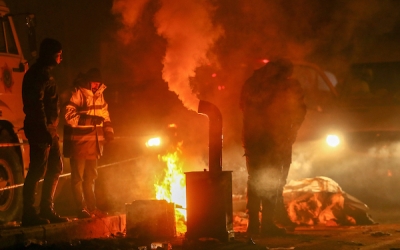
The Syrian government has also ruled out allowing aid to travel directly to rebel-controlled areas. Four cross-border aid points established by the UN in 2014 have gradually been closed by Damascus and Moscow, leaving the Bab al-Hawa border crossing as the only remaining option.
Dr Shaker al-Hamido, the manager of the Bab al-Hawa hospital, said that hospitals such as his were in dire need of drugs and medical supplies, despite some aid finally trickling in.
"Our management team reached out to to the Syrian American Medical Society (SAMS) with an urgent request for additional medical supplies," he said. "We finally received some and have started to treat some of the wounded."
The soaring death toll and pace of the help is coming way too late for thousands of people still desperate to see their loved ones extracted from crumbled buildings.
In the coming weeks, as the rescue efforts turn to the grim task of recovering bodies, countless survivors will need medications for high blood pressure and diabetes, drugs which are in short supply, he said.
Middle East Eye delivers independent and unrivalled coverage and analysis of the Middle East, North Africa and beyond. To learn more about republishing this content and the associated fees, please fill out this form. More about MEE can be found here.


